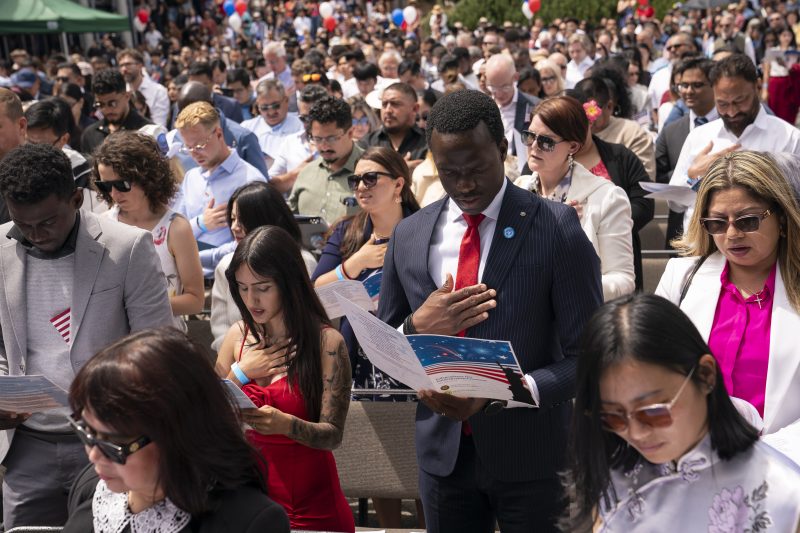(NewsNation) — The Trump administration will soon move forward with changes to the U.S. citizenship test, which the new head of U.S. Citizenship and Immigration Services has called too easy.
President Donald Trump has referred to naturalization as “one of the most priceless gifts ever granted by human hands” — an honor his administration will soon make harder to obtain.
Recently appointed USCIS Director Joseph Edlow told The New York Times the current test doesn’t have a high enough difficulty level.
“The test, as it’s laid out right now, it’s not very difficult,” Edlow told the Times. “It’s very easy to kind of memorize the answers. I don’t think we’re really comporting with the spirit of the law.”
According to USCIS, 90% of applicants pass the test on their first try.
What’s in the current US citizenship test?
Currently, the test includes an English exam and a civics portion. Participants are required to answer orally and need to correctly answer six of 10 questions about US history, randomly selected from a bank of 100 questions.
Edlow said he plans to revert to the 2020 citizenship test, which would increase the pool of questions to 128 and the number of correct answers needed to pass to 12 of 20.
USCIS has also proposed that the new test add a speaking section to assess English skills. An officer would show photos of ordinary scenarios — like daily activities, weather or food — and ask the applicant to describe them.
Edlow said these changes would help participants better understand American civics — but some questions have proven difficult to answer, even for American-born citizens who may have forgotten their U.S. history lessons.
Want to test your knowledge? You can access the current questions and answers here.
Citizenship test changes concern immigrant advocates
USCIS reported nearly 820,000 immigrants became U.S. citizens last year, and more than a million have done so since 2022.
It’s a privilege many immigrants say is worth studying hard for.
“I feel very proud, and I think this is a very big achievement and a big milestone in my life,” one new citizen said.
Mechelle Perrott, citizenship coordinator at San Diego Community College District’s College of Continuing Education in California, told the Associated Press changing the format could make it much more difficult for those with test-taking limitations.
“We have a lot of students that are refugees, and they’re coming from war-torn countries where maybe they didn’t have a chance to complete school or even go to school,” Perrot said. “It’s more difficult learning to read and write if you don’t know how to do that in your first language. That’s my main concern about the multiple-choice test; it’s a lot of reading.”
Edlow told the Times the revisions would happen soon, but a timeline has not yet been set.
The Associated Press contributed to this report.
 Read: Read More
Read: Read More




